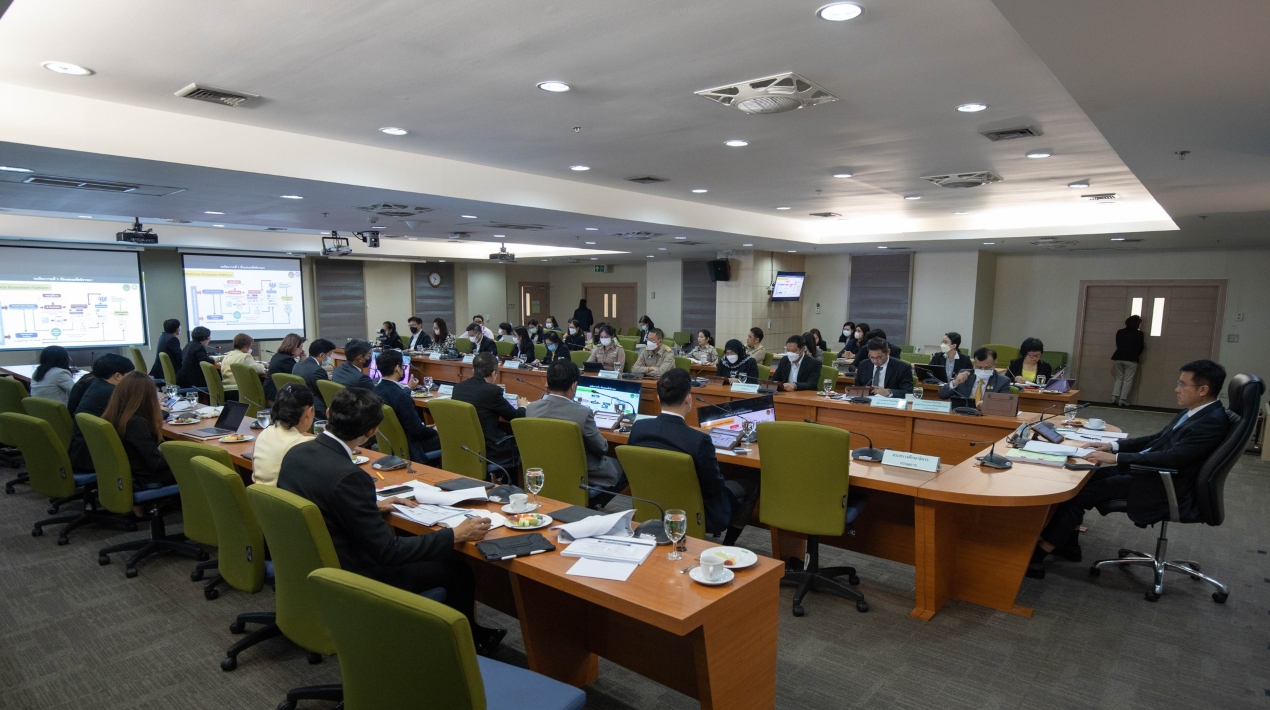
Data collecting regulation, information policy, and strategic planning are all areas where Thailand is eager to improve to drive the digital society and economy. Following the legislation, a framework for government assistance in compliance with personal data protection is being developed and deployed.
As an updated version of national strategies and goals on digital growth for economy and society, 2018–2037 phase 2, the act was addressed in a scheduled meeting with a designated committee that are responsible for monitoring the previous resolution’s implementation status. To help digital enterprises in Thailand, they followed rule No. 1/2022 and set up a digital service account.
Secretary General of the National Committee on the Digital Economy and Society, Puchphong Nodthaisong, attended the forum for the Promotion and Development of the Digital Economy and Society. More than fifty individuals from various organisations attended the meeting, which was attended by Minister of Digital Economy and Society Chaiwut Thanakmanusorn and numerous other connected figures.
Strategies for propelling the E-Workforce Ecosystem Platform, the backbone of Thailand’s digital economy, were reviewed in length. Puchpong shared that integrating metrics to gauge a country’s digital economy’s worth and improving government agencies’ ability to adapt to the national plan using an organisational project management approach was key.
The processing platform for the system and architectural design is now in development. The committee has offered advice on setting up and using the forum and other connected matters.
Qualification checks for registering digital service accounts were also considered, in addition to writing a ministerial rule prescribing supply and procurement methods that the state must encourage or support. The committee reported that it has revised a draught of rules and guidelines intended to advance the inclusion of people of all ages, including those with disabilities and the elderly, in the information age.
The annual Digital Economy Promotion Leadership Programme is organised by the Digital Economy Promotion Agency (depa) to further educate business executives on the cutting edge of digital technology.
The conference gave top-level executives the training they needed to analyse, synthesise, and apply knowledge to real-world challenges, empowering them to make meaningful contributions to the country’s economic development in the years to come. The ability of a government to invest in its top executives, both in the public and commercial sectors, is directly correlated to the country’s strength, as recognised by Depa. In addition, the rise of the digital economy will impact the administration of policies and plans.
Depa also geared up to educate the next generation of tech-savvy farmers. They looked at methods of boosting farmers’ and businesses’ digital technology use. Smart agriculture was presented to stimulate the digital economy during the summit. By embracing the digital economy, the province can fulfil its potential and meet its demands.
The commercial and service sectors, including the intelligent tourism industry, may all benefit from developing new agricultural goods and services made possible by digital innovation. The initiative’s latter phases saw commercial and service sectors merging with the technologically dependent “smart tourism” industry.
Several Thai farms have already started using smart agriculture. For example, to increase the nutritional value of their rubber and palm plants, farmers in Chiang Khan, Thailand, are using drones to disperse the biochemicals obtained from the pig.
Smart agriculture is an idea that has been gaining traction throughout the world in recent years. Connecting and enhancing the intelligence of farms promotes production and addresses difficulties specific to farms (such as fulfilling growing food demands). Precision farming, variable rate technologies, smart irrigation, and intelligent greenhouses are all examples of IoT-enabled intelligent agricultural systems.
















